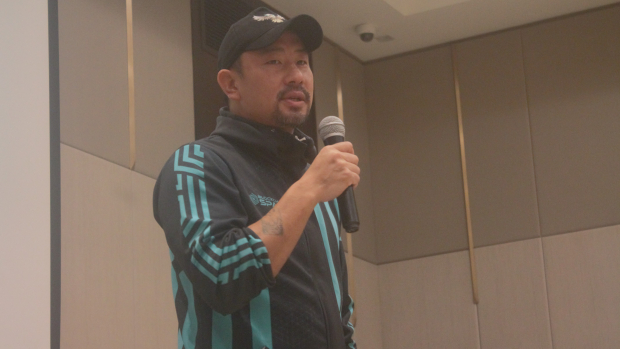Filipino online communities were the first to showcase the opportunities and potential of play-to-earn (P2E) gaming guilds as an actual business model, BlockchainSpace founder and CEO Peter Ing said in an exclusive interview with Newsbytes.PH, alongside Yield Guild Games (YGG) country manager Luis Buenaventura, in the context of the recently concluded Philippine Web3 Festival.

Both BlockchainSpace and YGG were organizers at the week-long flagship conference that presented the future of the technology set to drive the third generation of the World Wide Web, also known as Web3, in the areas of blockchain gaming, decentralized finance, non-fungible tokens (NFTs), esports, cryptocurrency, and the metaverse.
“Both of us have been very active in the cryptocurrency industry for a number of years now. We’re here to basically highlight the projects and different businesses that are emerging from the industry in the last years, especially with the boom of what we call GameFi (play-to-earn games like Axie Infinity),” said Ing.
Prior to the Covid-19 pandemic, BlockchainSpace was involved in the business of building offline communities. Ever since the boom of the GameFi concept sparked during the lockdowns, Ing noticed that online communities were surpassing the growth rates of offline communities.
“That’s actually when we pivoted to support online communities and the activities that they’re doing. From a commercial angle, a lot of them were banding together to run these “microguilds”, and these guilds were basically acting like business where they were loaning out assets for other people to play, to earn and split revenue at the end of the month,” he explained.
Peter Ing believes that this event is a precursor to how online communities in the future will be converted to actual earning businesses, with Filipinos being one of the earliest adopters and showed the global stage how these business models could proliferate.
In the past with Web 2.0, users did not have ownership to the content they generated and placed on the internet. Ing says that with Web3, user-generated content is owned by the user themselves and earn from the content they put out, rather than the large companies who are aggregating content that is not their own.
“The ultimate premise of Web3 is pretty sound. It’s about putting more control into the hands of the users, like the people who are actually out there creating content, they should be the ones to actually own the things they produce. That sounds fair. We’ve not had any kind of platform that allowed us to do that before. The players and content creators can be a little more direct with the way they participate in a particular game or platform,” Buenaventura added.
Through Web3, users can either purchase the crypto token that represents the platform or buy the actual NFT assets that allow them access to it. In both of these scenarios, users are participating directly in ownership of the platform, opening up new avenues for earning opportunities to the average person.
“Every project necessitates its own coin or token because that’s how users can participate in the financial aspect of that platform. That’s part of the deal. Yes, it is a high learning curve because there are so many projects and games out there… but that’s not that different from stocks either. You need to spend time doing your homework,” he continued.
Building on what Buenaventura said, from a commercial perspective, Ing says that ownership of a certain number of token or assets gives users the ability to participate directly into the governance of how communities behave and what activities will be carried out to push forward.
“Ownership and governance create more engagements. With these micro-communities or guilds, a lot of them will have their own tokens. These guilds will then talk to their community… and these community members, using their tokens, can vote on the future of the community’s activities. Should they be profitable, those tokens also represent a share of what the revenues could be, and I think that’s going to be very exciting,” Ing commented.
For Buenaventura, play-to-earn games are just the first stage of innovation in GameFi. He believes that these platforms still need more work in their respective economic models to make them more sustainable and YGG’s vision is to be an investor and supporter for these various attempts at cracking the code of play-to-earn games.
Meanwhile, BlockchainSpace aims to legitimize the funds earned through the metaverse space, treated equally as traditional currencies.
“What we want from crypto companies is a lot more accountability, which is not an innovation, and is more of something that some parts of the industry have forgotten in the mad rush to be the next big crypto company, innovator, or household brand name,” Buenaventura said.
“Previously, people have been playing computer games and then earning balances, but those balances were kept within internal economies that only the game developers could benefit from. Now today, what we have is the ability for people that earn tokens within these gaming economies can actually take that value outside of that economy. They can exchange those tokens for real-life money,” Ing added.
During the Philippines Web3 Festival, BlockchainSpace also launched Guild Hub – a platform dedicated to helping Web3 businesses gain legitimacy and allows gaming guilds like YGG to access several projects and platforms, as well as view services, platforms, products, crypto on-ramps and off-ramps, news, and analytics.




